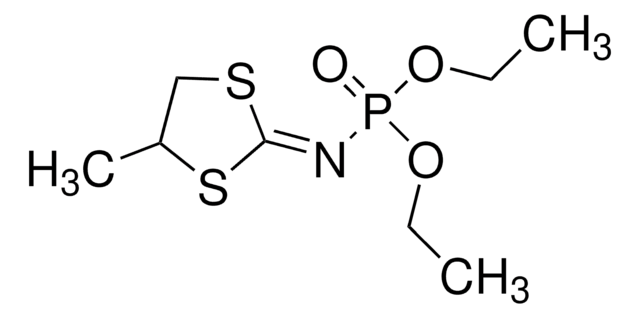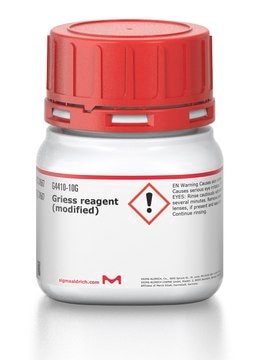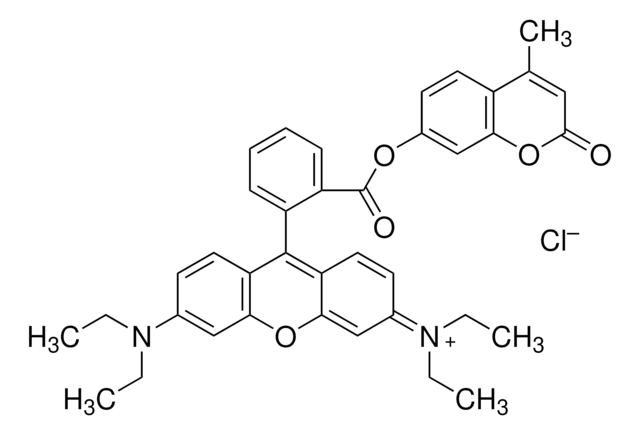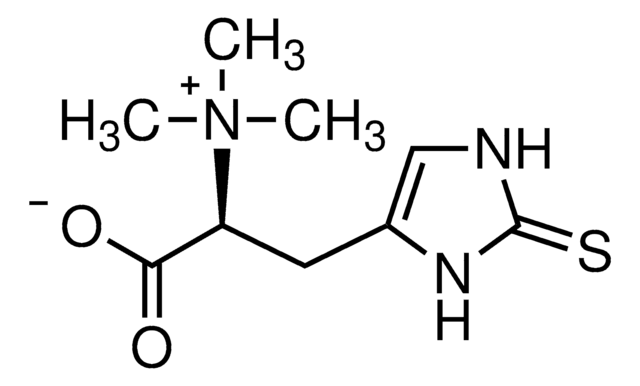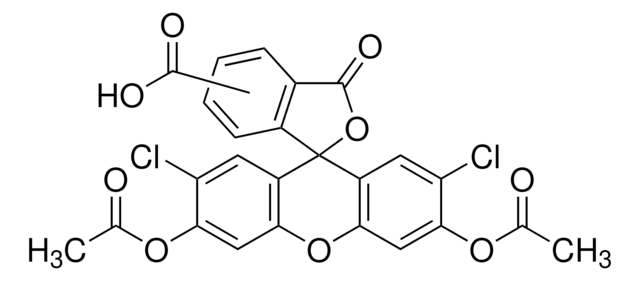37291
Dihydroethidium
BioReagent, suitable for fluorescence, ≥95% (HPCE)
Synonym(s):
2,7-Diamino-10-ethyl-9-phenyl-9,10-dihydrophenanthridine, 3,8-Diamino-5,6-dihydro-5-ethyl-6-phenylphenanthridine, Hydroethidine
About This Item
Recommended Products
product line
BioReagent
Quality Level
Assay
≥95% (HPCE)
form
solid
solubility
acetonitrile: soluble
methanol: soluble
fluorescence
λex 358 nm; λem 461 nm
λex 392 nm; λem 410 nm in methanol
suitability
suitable for fluorescence
storage temp.
−20°C
SMILES string
CCN1C(c2ccccc2)c3cc(N)ccc3-c4ccc(N)cc14
InChI
1S/C21H21N3/c1-2-24-20-13-16(23)9-11-18(20)17-10-8-15(22)12-19(17)21(24)14-6-4-3-5-7-14/h3-13,21H,2,22-23H2,1H3
InChI key
XYJODUBPWNZLML-UHFFFAOYSA-N
Looking for similar products? Visit Product Comparison Guide
Application
Packaging
Linkage
Storage Class Code
11 - Combustible Solids
WGK
WGK 3
Flash Point(F)
Not applicable
Flash Point(C)
Not applicable
Personal Protective Equipment
Certificates of Analysis (COA)
Search for Certificates of Analysis (COA) by entering the products Lot/Batch Number. Lot and Batch Numbers can be found on a product’s label following the words ‘Lot’ or ‘Batch’.
Already Own This Product?
Find documentation for the products that you have recently purchased in the Document Library.
Customers Also Viewed
Our team of scientists has experience in all areas of research including Life Science, Material Science, Chemical Synthesis, Chromatography, Analytical and many others.
Contact Technical Service

